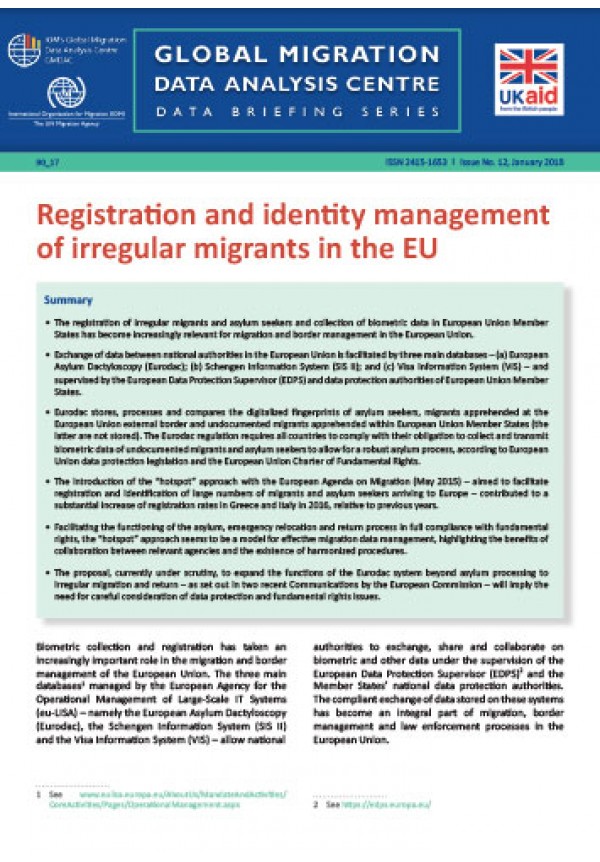
Global Migration Data Analysis Centre: Data Briefing Series | Issue No. 12, January 2018
The registration of irregular migrants and asylum seekers and collection of biometric data in European Union Member States has become increasingly relevant for migration and border management in the European Union.
Exchange of data between national authorities in the European Union is facilitated by three main databases – European Asylum Dactyloscopy (Eurodac); (b) Schengen Information System (SIS II); and (c) Visa Information System (VIS) – and supervised by the European Data Protection Supervisor (EDPS) and data protection authorities of European Union Member States.
Eurodac stores, processes and compares the digitalized fingerprints of asylum seekers, migrants apprehended at the European Union external border, and undocumented migrants apprehended within European Union Member States (the latter are not stored). The Eurodac regulation requires all countries to comply with their obligation to collect and transmit biometric data of undocumented migrants and asylum seekers to allow for a robust asylum process, according to European Union data protection legislation and the European Union Charter of Fundamental Rights.
The introduction of the “hotspot” approach with the European Agenda on Migration (May 2015) – aimed to facilitate registration and identification of large numbers of migrants and asylum seekers arriving to Europe – contributed to a substantial increase of registration rates in Greece and Italy in 2016, relative to previous years.
Facilitating the functioning of the asylum, emergency relocation and return process in full compliance with fundamental rights, the “hotspot” approach seems to be a model for effective migration data management, highlighting the benefits of collaboration between relevant agencies and the existence of harmonized procedures.
The proposal, currently under scrutiny, to expand the functions of the Eurodac system beyond asylum processing to irregular migration and return – as set out in two recent Communications by the European Commission – will imply the need for careful consideration of data protection and fundamental rights issues.